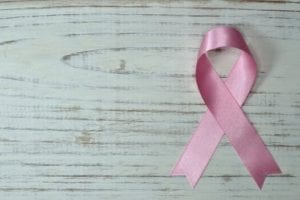Written by Angeline A. De Leon, Staff Writer. A case-controlled study of Brazilian women finds an association between regular alcohol consumption and increased risk of breast cancer.
 Among the various studies conducted on breast cancer, nearly all epidemiological studies agree on the association between alcohol intake and increased risk of breast cancer (1). According to the International Agency for Research on Cancer, breast cancer risk increases with alcohol consumption in a dose-dependent fashion (2). Findings from one recent study, for example, suggest that the odds ratio of breast cancer was significantly higher in women who consumed more than five drinks a week, as compared to women who had not consumed alcohol for at least the past ten years (Odds Ratio = 3.13) (3). While the precise mechanisms underlying the carcinogenic role of alcohol in breast cancer is still under investigation, researchers speculate that alcohol may increase levels of estrogen and other hormones associated with hormone-receptor-positive breast cancer (4). Given that the majority of surveys linking alcohol consumption and breast cancer risk is based on pooled data from developed countries, there is a current need to verify this relationship in less developed countries where alcohol consumption rates differ. The World Health Organization’s Global Status Report on Alcohol indicates that alcohol intake in a developing country like Brazil, for example, is medium to high (5). In a study published in Alcohol Consumption and Breast Cancer, researchers examined the relationship between alcohol consumption and breast cancer risk in the developing country of Brazil.
Among the various studies conducted on breast cancer, nearly all epidemiological studies agree on the association between alcohol intake and increased risk of breast cancer (1). According to the International Agency for Research on Cancer, breast cancer risk increases with alcohol consumption in a dose-dependent fashion (2). Findings from one recent study, for example, suggest that the odds ratio of breast cancer was significantly higher in women who consumed more than five drinks a week, as compared to women who had not consumed alcohol for at least the past ten years (Odds Ratio = 3.13) (3). While the precise mechanisms underlying the carcinogenic role of alcohol in breast cancer is still under investigation, researchers speculate that alcohol may increase levels of estrogen and other hormones associated with hormone-receptor-positive breast cancer (4). Given that the majority of surveys linking alcohol consumption and breast cancer risk is based on pooled data from developed countries, there is a current need to verify this relationship in less developed countries where alcohol consumption rates differ. The World Health Organization’s Global Status Report on Alcohol indicates that alcohol intake in a developing country like Brazil, for example, is medium to high (5). In a study published in Alcohol Consumption and Breast Cancer, researchers examined the relationship between alcohol consumption and breast cancer risk in the developing country of Brazil.
This case-control study involved 1,506 Brazilian women (average age = 42 years), 406 of whom were diagnosed with breast cancer through histopathological analysis and 11,000 of whom were dismissed as cancer-free and assigned to serve as the control group. Subjects were asked to identify their level of alcohol consumption (abstainer, occasional consumer, regular drinker – 3 to 4 times a week), and statistical tests were conducted to calculate odds ratios and 95% confidence intervals (CI).
Analyses revealed an increased risk of invasive breast cancer in alcohol consumers (<50 years old: OR = 4.7; 95% CI: 1.4 to 16.2; ≥ 50 years old: OR = 3.9; 95% CI: 1.2 to 13.4), compared with abstainers or occasional drinkers. For women below the age of 50, those who reported alcohol intake for 10 years or more showed a threefold higher risk of developing breast cancer (OR = 3.0; 95% CI: 1.2 to 7.6). In women aged 50 years and older, no significant association between alcohol consumption and breast cancer risk was detected.
Conclusive evidence supports the association between regular alcohol consumption and increased risk of breast cancer in a South American population of women, regardless of age. Sub-analyses indicated that long-term alcohol consumption (10 years or longer) specifically raised the risk of breast cancer in women younger than 50 years old. It is possible that the menstrual cycle may play a role in producing the carcinogenic effects of alcohol in breast cancer, however, further studies are needed to fully explore the mechanisms responsible for alcohol’s association with breast cancer development.
Source: Vieira R, Tobar JSS, Dardes R, et al. Alcohol consumption as a risk factor for breast cancer development: a case-control study in brazil. Asian Pac J Cancer Prev. 2018; 19(3): 703-707. DOI: 10.22034/APJCP.2018.19.3.703.
This work is licensed under a Creative Commons Attribution-Non Commercial 4.0 International License.
Click here to read the full text study.
Posted May 1, 2018.
References:
- Baan R, Straif K, Grosse Y, et al. WHO-IARC International Agency for Research on Cancer Monograph Working Group 2007: Carcinogenicity of alcoholic beverages. Lancelet Oncol. 2007; 8: 292-293.
- Bagnardi V, Blangiardo M, La Vecchia C, et al. Alcohol consumption and the risk of cancer: a meta-analysis. Alcohol Res Health. 2001; 25: 263-270.
- Strumylaite L, Sharp SJ, Kregzdyte R, et al. The association of low-to-moderate alcohol consumption with breast cancer subtypes defined by hormone receptor status. PLoS One. 2015; 10: e0144680.
- Seitz HK, Pelucchi C, Bagnardi V, et al. Epidemiology and pathophysiology of alcohol and breast cancer: Update 2012. Alcohol. 2012; 47: 204-212.
- World Health Organization. Global status report on alcohol. 2011. WHO/HSC/SAB/99.11.

